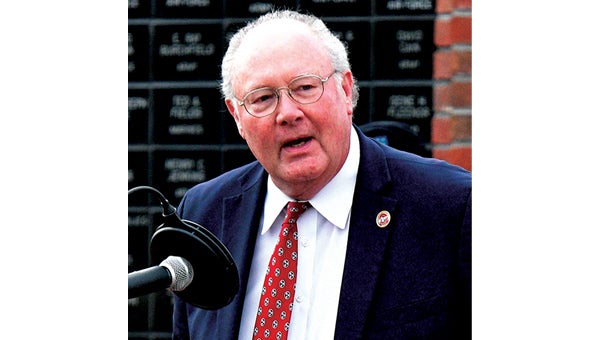Overmountain Victory Trail extension plans developing
Published 9:29 am Friday, February 19, 2016
Trailside parks, historic markers and a fully connected route along the Overmountain Victory Trail are on the radar for county and city Parks and Recreation officials, with the help of the National Park Service and community members.
Both Elizabethton P&R Director Mike Mains and Carter County P&R Board Chair Ken Gouge agree the project plans are in their infancy.
“The first step is to prepare a master plan that will look at all aspects of the trail — not just our section,” said Gouge.
A committee met on January 25 to discuss potential opportunities along the historic trail. Gouge said these must be organized with consideration to obstacles along the route and cost estimates for construction. The next step will be determining how to build it, he said, noting it will require determination of rights of way, construction of bridges and parks, and anticipated installation of historical markers.
“The trail extension and park have existed for a long time on paper, and portions are scattered here and there between Tennessee, South Carolina and Virginia, including a quarter mile section in the Roan Mountain Community Park,” said Gouge.
The route for the Tweetsie Trail extension actually follows the OVT for about six miles, he added.
Mains, Gouge and residents of Carter and surrounding counties agree designating this trail and highlighting its history are imperative for its story to continue with due regard.
“The Overmountain Men’s march to the Battle of Kings Mountain this is the most important thing that ever happened in Carter County and Elizabethton,” said Gouge. “The victory at King’s Mountain, fought by men of this region, was the beginning of the end of the American war for independence, and it started right here at Sycamore Shoals.”
Showcasing this could also have a positive impact on historic tourism, Gouge added.
Approximately 60 percent of the funding for the project would come from the National Park Service, Gouge said, adding communities and partner groups would have to pay the additional 40 percent.
At this point, nothing is scheduled.
“Planners and other interested parties have been meeting and gathering support from local governments,” Gouge said. “We will be working soon on pledges of money to help cover the cost of the master plan, and the National Park Service is in process of getting a quote for the master plan.”
Community support of this initiative is vital for it to come to fruition.
“The National Park Service insists there be significant local buy in,” said Gouge. “They want to work with communities that want to make this happen and are not interested in imposing this on any community or property owner. It’s going to be a collaborative, cooperative effort into which we all invest our time, effort and money.”




